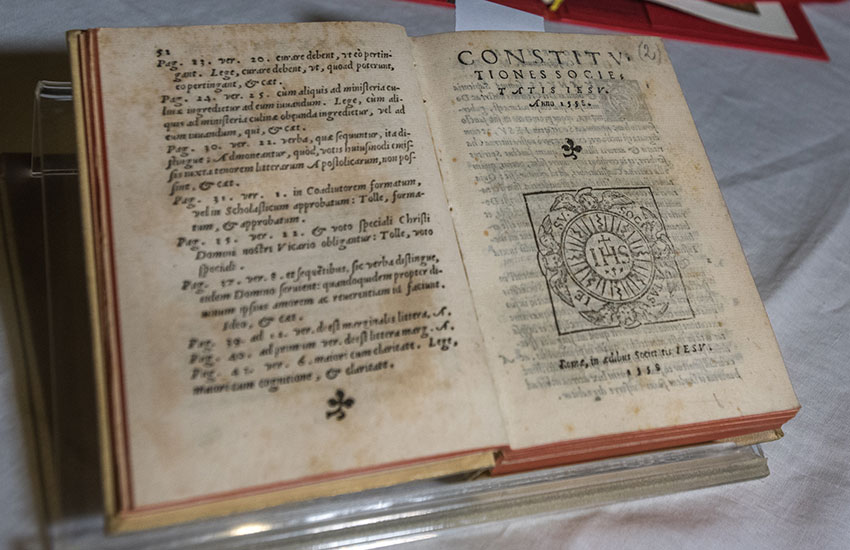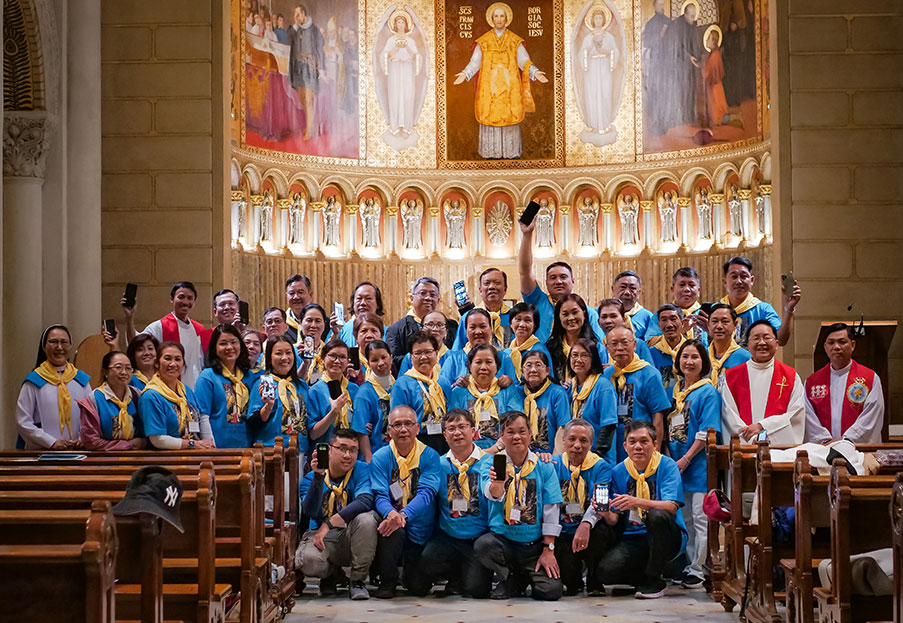Authentic Poverty needs ongoing discernment
Third and final article by the Secretary for the Service of Faith on the theme of Jesuit poverty. This is the topic that the Extended Council of Father General is focusing on as a priority during the week of 11 to 15 January.
By James Hanvey, SJ
There is no doubt that Ignatius and the early companions, even before they decided to found a religious order, were committed to personal evangelical poverty in the service of Christ. When they committed themselves to Christ and vowed at Montmartre to follow Him in mission, they had already given up everything except the basic necessities of their journey. They never lost that commitment or the conviction that evangelical poverty was the necessary condition for preaching the gospel. It was the hallmark of authentic witness and freedom for mission.
What is interesting is to see how this condition of mission is interpreted and applied as they encounter the demands of founding new apostolic works and colleges. They not only needed to beg - this they seemed happy to accept - but they had to think about the need to sustain these endeavours. How to express and live poverty as an apostolic grace comes to be a discerned reality. They have no intention of compromise, but they realised that poverty had to be seen in the perspective of the mission and its demands. Here, too, is the risk. There are always excellent and valid reasons for seeking material security, not so much for oneself but for our ministries. This is why poverty has to be lived with a vigilant discernment. To be guaranteed, it needs to become an interior disposition; a bias or ‘habitus’ - ‘a way of proceeding’- which will always be recognised in its effects even as the times, work, and circumstances may differ.
From the ‘Spiritual Diary’ of Ignatius we can glimpse how deep this question goes. It is at the very heart of the newly emerging order: how to protect the vow of poverty as a source of evangelical life and mission - both personal and communal - and yet preserving it as a discerned reality in service of mission. What Ignatius and the emerging Society do is establish a fixed point of concrete practice and some central principles for discernment which need always to be operative to resist compromises.
Three key principles
The Constitutions (§553-54) lay down a first
principle: that no one will alter what pertains to poverty in the Constitutions
except to make it more strict. In a sense, this is an encoding of the Principle
and Foundation of the Exercises for it is the mark of our complete dependence
upon God and our need to look to God for all that we are and receive. It
establishes that poverty is really not negotiable. It is then given a concrete
practice: not to allow apostolic Jesuits or apostolic communities any income
from fixed assets. This is clarified later in General Congregation 31 and
expressed in the Jesuit norms. (CN137)

The second principle is stated in Constitutions §555-56 and says that although works of the Society, or those for which they have care or responsibility, may have some fixed revenue, the Society is not to have any control over it. In other words, the Society is not to possess the endowment or revenue. Again, this expresses what I take to be the two core elements of our evangelical poverty both spiritual and practical. First, this is to ensure that the Society is never dispensed from relying upon God, ‘that he will cause everything to be provided which can be expedient for his greater praise and glory.’ Second, that the Society remains free of all financial obligations for mission. There is a concern that benefactors and donations should support mission, not determine it.
The third principle, found in §557, says that that the ‘professed’ and all those who have final vows (§560) should live from alms. They should not avail themselves of any fixed revenues of the house or works of which they are part.
We can see that these three principles are foundational but minimal. They are to prevent accumulation of wealth and the obligations that go with it, and to preserve the freedom and integrity of the Society for its mission.
Interpretation
Over the centuries these three ‘principles’ and their translation into concrete practice needed to be applied and interpreted according to different cultures and changing situations – in the 16th century there was no facility for online banking, investment or credit cards! But I think they are remarkably clear; they preserve the fundamental orientation of our vow as one of both interior and material freedom for mission. This point is well illustrated in the instructions to Jesuits receiving special missions from the Pope, “Moreover, he who has been designated by His Holiness to go to some region should offer his person generously, without requesting provisions for the journey or causing a request for anything temporal to be made.” (Cons. §609;610).
These ‘principles’ help us to see how the
Society’s vow of poverty - especially when it is understood in terms of the
other two – is not primarily about an imposedascetism, although this is undoubtedly part of it, but
is ordered to freedom to be with the Risen Christ in His mission - Christ who
himself receives everything from the Father. This poverty makes us completely
dependent upon God; spiritually and materially it grounds us in our being
created beings. It returns us to the great communion of all created things, and
re-orders our relationship of inter-dependence with them. To this extent, it
offers a redemptive or restorative grace and it can allow us to become
ministers of that grace for others, indeed, for all of creation. Flowing from
that, the poverty of the Society must be marked by a total generosity and
gratitude. It is really the freedom to be sent without conditions, purely in
the service of Jesus Christ, to embrace the world with His costly but
unmeasured love.







